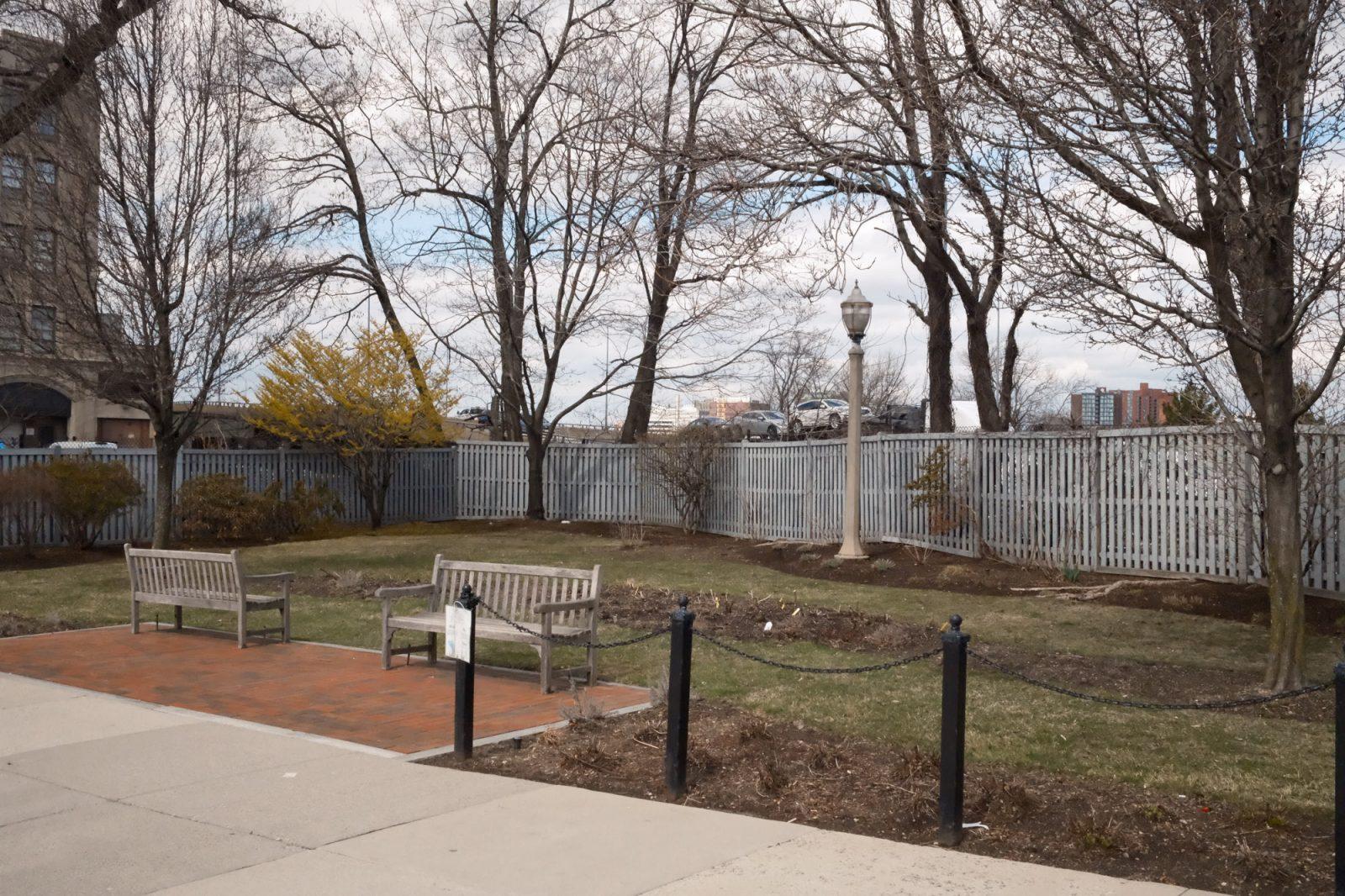For Boston University Sustainability, Earth Day is a year-round event.
BU Sustainability’s Earth Day 365, which runs for the entire month of April, is a series of events throughout the BU community that promote the preservation of the planet.
The events fall into three themes: What We Grow, What We Eat, What We Toss; Reuse and Repair; and The Natural World Impacting Us.
The first event of the series, “Shred + Recycle,” was held at Talbot Green and Agganis Arena’s parking lot on April 8 and 9. The event was hosted in collaboration with BU Information Security and Technology.
Sam Moller, assistant director of communications for University Sustainability, said the event’s goal was to provide a way “for people to get rid of old electronics, hard drives, batteries and light bulbs, some old textiles, books, printer paper and sensitive documents.”
By having their documents shredded and hard drives taken apart on-site, he said, attendees are able to protect any confidential material contained on them.
“Last semester, we were doing this, there was an academic department that had [decades of blue exam books] with people’s personal information on them,” Moller said. “That’s who we’re really serving.”
The series’ 17 events were planned in collaboration between BU Sustainability and a number of other clubs and organizations.
One of these organizations, BU’s Institute for Global Sustainability, has a similar focus to BU Sustainability, however it focuses its research outside of campus.
Alison Gold, communications and events specialist, said IGS aims to be “the convener for sustainability research on BU’s campuses.”
“We bring together faculty, students and staff from across [and beyond] the BU community,” Gold said. “A big goal of ours is to power research and conversation at the intersection of sustainability and equity.”
As part of the the Earth Day 365 series, IGC held a talk with New York Times Bestselling Author Keith O’Brien April 10 to discuss his book “Paradise Falls,” which covers the Love Canal environmental disaster — described by the US Environmental Protection Agency as “one of the most appalling environmental tragedies in American history.”
“[O’Brien] talked about his reporting process, the inspiration behind the book and the relevance [of the topic] for today,” Gold said. “[He also talked] about community advocacy and how that can help to inspire creating real change.”
Collaboration, a central theme of Earth Day 365, is key to IGS’ approach, she said.
“We really like to bring together people from across different centers and colleges and departments within BU,” Gold said. “It’s really important to have that interdisciplinary approach when trying to address major issues [to] integrate all of those perspectives.”
Pedro Falci, managing director of Student Wellbeing, said the process of collaborating with BU Sustainability and other organizations on-campus was “instrumental.”
Student Wellbeing, along with Development and Alumni Relations, Warren Towers Residence Life and a number of other clubs and organizations, is helping to facilitate the Charles River Esplanade Clean Up on the section of the Esplanade closest to BU’s campus.
The event on April 26 marks the Esplanade Association’s 26th annual river clean up.
“[The Esplanade Association] is a not-for-profit that oversees the maintenance and upkeep of the esplanade,” Falci said. “They always host a large Earth Day Esplanade cleanup, and they solicit volunteers from the Boston area.”
Falci said the Esplanade cleanup impacts two of Student Wellbeing’s “dimensions” that it focuses on— environmental and social wellbeing.
“It’s not just helping the environment, which is wonderful,” Falci said,.“But [it is also about] giving students a chance to get outside the classroom and do something a little bit more fun, [and] a little bit more social as a collective.”
This story was published at 7:33 p.m.


























































































































